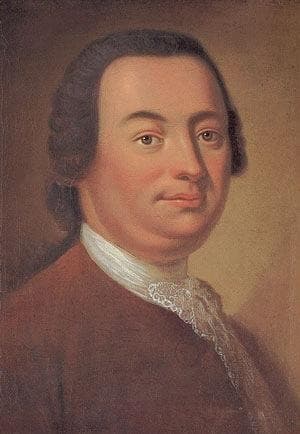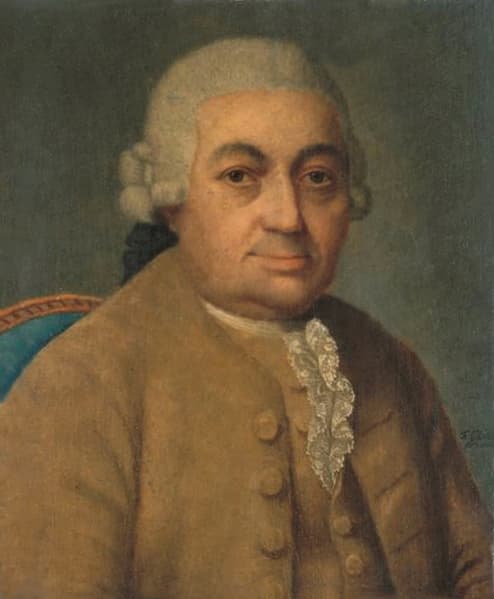Johann Christoph Friedrich, known as the ”Bückeburg Bach”, was born in Leipzig on 21 June 1732 and baptised two days later. He was the 16th of Johann Sebastian Bach’s twenty children and the 9th child from his marriage to Anna Magdalena. He was a strong and healthy child, and he attended St. Thomas School, where his father taught him to play the organ and other keyboard instruments, as well as acquainting him with composition.

Johann Christoph Friedrich Bach
Johann Christoph Friedrich enrolled at the University of Leipzig in 1749 but quickly ended his law studies to take on the position of harpsichordist at the court of William, Count of Schaumburg-Lippe, in the town of Bückeburg. The Count was a great admirer of Frederick the Great, and he decided to also employ one of J.S. Bach’s sons. Johann Sebastian was delighted and his teenage son quickly rose in musical rank at the court. He married Lucia Elisabeth Münchhausen in 1755, and the couple had eight children, although only three daughters and one son survived infancy. Direct descendants of Anna Philippina Friederike (1755–1804) survive to this day, and Wilhelm Friedrich Ernst (1759–1845) was the only one of Johann Sebastian Bach’s grandsons to choose a career in music.
Johann Sebastian Bach: Violin Sonata in G Major, BWV 1021 (James Ehnes, violin; Benoît Loiselle, cello; Luc Beauséjour, harpsichord)

Carl Philipp Emanuel Bach
Although Johann Christoph Friedrich was appointed concertmaster on 18 February 1759, his salary did not allow him to make a comfortable living. Unsurprisingly, he looked around for alternative employment. When Georg Friedrich Telemann died in 1767, Johann Christoph Friedrich applied to succeed him as director of music. Ultimately, the position went to his famous half-brother Carl Philipp Emanuel. This did not sour fraternal relations, as it might have done, but spawned an increase in the frequency of exchange of ideas and compositions. In addition, the appointment of Johann Gottfried Herder as court preacher led to fruitful collaborations between the poet and the composer. In 1778, Bach visited his brother Johann Christian in Hamburg, but his final years were made difficult by the presence of a young Bohemian musician by the name of Franz Christoph Neubauer (1760–1795). The flamboyant Neubauer became the overnight sensation at the Bückeburg court, and professionally humiliated, Johann Christoph Friedrich died on 26 January 1795 of “a heated chest fever.”
For more of the best in classical music, sign up for our E-Newsletter
